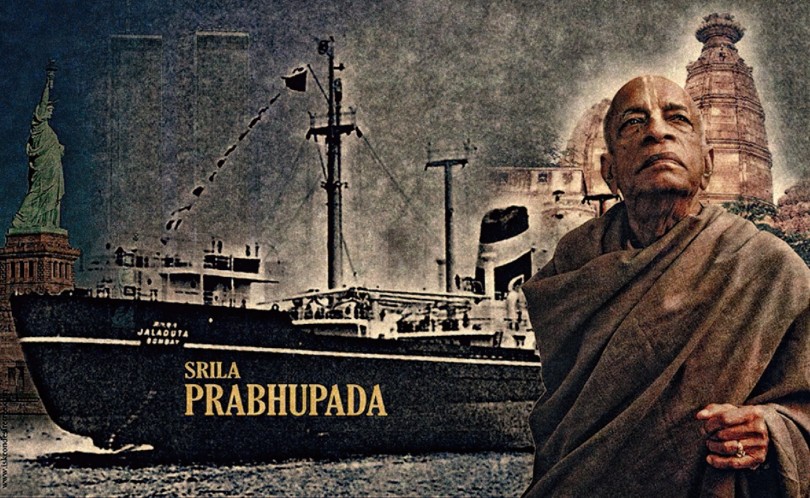History of iskcon
The International Society for Krishna Consciousness (ISKCON), also known as the Hare Krishna movement, was founded in 1966 in New York City by A.C. Bhaktivedanta Swami Prabhupada. It has since grown into a global spiritual and religious movement based on the teachings of the Vedic scriptures, particularly the Bhagavad Gita and Srimad Bhagavatam. The central aim of ISKCON is to promote Krishna Consciousness—the process of reviving one's relationship with the Supreme Personality of Godhead, Krishna, through the practice of bhakti-yoga (devotional service).
Early Life of Srila Prabhupada and Founding of ISKCON
Before founding ISKCON, Srila Prabhupada spent decades preparing for his mission. Born as Abhay Charan De in 1896 in Kolkata, India, Prabhupada was a follower of Srila Bhaktisiddhanta Sarasvati Thakura, a prominent leader in the Gaudiya Vaishnavism tradition. Bhaktisiddhanta urged Prabhupada to spread the teachings of Lord Krishna to the English-speaking world. After years of preparation, Prabhupada finally embarked on this mission.
At the age of 69, Srila Prabhupada sailed to the United States aboard a cargo ship, Jaladuta, in 1965, arriving in New York with minimal financial resources but a strong faith in Krishna. In New York City, he began holding gatherings in a small storefront on 26 Second Avenue, teaching the ancient practice of Krishna consciousness through chanting the Hare Krishna mantra, studying scriptures, and practicing devotional service.
Establishment of ISKCON in 1966
On July 13, 1966, Srila Prabhupada officially established ISKCON. His teachings resonated with many young people of the time, especially those who were seeking spiritual alternatives to materialism and the countercultural movements of the 1960s. These early disciples helped form the first ISKCON center in New York, and from there, the movement spread quickly across the United States and beyond.
Prabhupada emphasized sankirtan, the congregational chanting of the Hare Krishna mantra, and this became a central aspect of ISKCON's outreach efforts. Public chanting sessions in streets and parks, known as Harinama Sankirtan, became iconic representations of the movement.
Global Expansion
Within just a few years, ISKCON had expanded internationally, establishing temples and centers across North America, Europe, and India. Srila Prabhupada personally traveled to many of these places, inspiring his disciples and training them to spread the teachings of Krishna Consciousness.
In addition to temples, ISKCON also established farm communities, schools, and food distribution programs, such as Food for Life, which serves millions of meals to those in need. The Bhaktivedanta Book Trust (BBT) was created to publish Prabhupada’s books, including his translations and commentaries on major Vedic texts like the Bhagavad Gita As It Is and the Srimad Bhagavatam. These texts became the foundational literature for ISKCON members and were distributed widely.
Key Teachings and Practices
ISKCON promotes the teachings of the Bhagavad Gita and Srimad Bhagavatam, focusing on the practice of bhakti-yoga (devotional service) as the path to spiritual enlightenment. The central practice is the chanting of the Hare Krishna mantra:
"Hare Krishna, Hare Krishna, Krishna Krishna, Hare Hare
Hare Rama, Hare Rama, Rama Rama, Hare Hare."
Other practices include vegetarianism, worship of Radha and Krishna, and living a life of humility, compassion, and devotion. ISKCON members follow four key principles: no meat-eating, no gambling, no illicit sex, and no intoxication.
Prabhupada’s Passing and Continued Legacy
In 1977, Srila Prabhupada passed away in Vrindavan, India, after having established over 100 temples worldwide. However, his legacy continues to thrive. ISKCON is managed by the Governing Body Commission (GBC), which was established by Prabhupada to oversee the movement after his departure. Today, ISKCON remains a dynamic global movement with millions of followers and thousands of centers, including temples, schools, and farms.
Contributions to Society
ISKCON has contributed to society in numerous ways:
Spiritual Education: Through its publications, lectures, and teachings, ISKCON has introduced Vedic spirituality and culture to people around the world.
Cultural Contributions: ISKCON has popularized Indian culture, art, music, and dance, especially through kirtans (devotional singing) and Ratha Yatra festivals.
Humanitarian Efforts: The Food for Life program has fed millions of people globally, particularly in disaster-stricken and poverty-stricken areas.
Interfaith Dialogue: ISKCON actively engages in dialogue with leaders from other faiths, promoting mutual understanding and cooperation.
ISKCON Today
ISKCON has grown into a well-established spiritual movement with centers in more than 100 countries. The organization continues to spread the message of Krishna Consciousness, operating temples, schools, farms, and humanitarian projects. It also hosts major festivals, such as the annual Ratha Yatra (Festival of the Chariots), which draws huge crowds in cities around the world.
ISKCON’s influence extends beyond its religious mission; it is seen as a cultural force that has brought Vedic teachings, vegetarianism, and the Hare Krishna mantra to a global audience. Srila Prabhupada’s vision of a worldwide society rooted in devotion to God and service to humanity continues to inspire millions.

